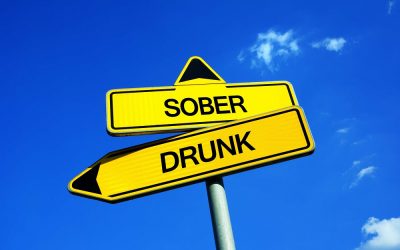Alcohol consumption has been linked to increased blood pressure levels, and repeated heavy drinking can exacerbate this issue. However, new research finds that both moderate and heavy drinking can cause spikes in blood pressure and increase the risk of more serious medical conditions over time. A 2019 study on 17,000 U.S. adults shows how long after drinking does blood pressure go down that moderate alcohol consumption—seven to 13 drinks per week—substantially raises the risk of developing high blood pressure.

The first few days:

Individuals experience a drop in blood pressure after they cease consuming more alcohol. Researchers believe that high blood pressure caused by recent alcohol consumption is reversible if the person stops alcohol use. Because alcohol is a known human carcinogen, abstaining from alcohol will eventually decrease your risk of getting cancer.
72 Hours
- The first month after you stop drinking is one of the most challenging months because you may experience the detox stage, where your body may go into alcohol withdrawal if you have a physical dependance.
- Think of it like a seatbelt during turbulence—you’re still headed in the right direction, just safely.
- Normal sleeping patterns should begin reestablishing, your mind will be clearer, and your energy will be restored.
- Dehydration and electrolyte imbalances can cause blood vessels to narrow and the heart to work harder, further contributing to spikes in blood pressure.
- Within 3-7 days, withdrawal symptoms will stop for most dependent drinkers.
They can’t stop drinking without experiencing acute alcohol withdrawal. There’s a high possibility of liver damage or coronary artery disease, or several mental disorders at this level. If you have high blood pressure or are at risk for developing it, talk to your doctor about how alcohol consumption may affect you and what steps you need to Substance abuse take to keep yourself healthy. Alcohol can cause your blood pressure to increase because it narrows your blood vessels, which makes it harder for the heart to pump blood.
Heavy Drinking: A Recipe for Heart Problems
- Untreated hypertension can eventually lead to heart attack and stroke.
- Lastly, the idea was formed that the effect of alcohol on blood pressure is reversible.
- “After a few months, the brain will begin to return to health,” says Dr. Abramowitz.
Alcohol is an irritant to the lining of your GI tract, causing heartburn, ulcers, and bloating. Alcohol also plays a major role in the gut microbiome, meaning how much good and bad bacteria make up the gut. When there is poor gut health, meaning an imbalance of bacteria, the lining of the gut becomes affected. The GI tract is now exposed to bacteria and toxins, resulting in bloating, diarrhea, and an increased likelihood of infections and illnesses. Withdrawal symptoms appear hours after the most recent drink, peak around 72 hours, and begin to resolve around day 4 or 5.
Acute increases usually occur from consuming excessive alcohol in a single sitting. Have a wholesome meal beforehand to make the most of your drinking sessions. Additionally, incorporate low-fat, low-salt snacks between drinks to https://arabiankidsacademy.ae/how-to-be-more-eco-friendly-at-home-green-living/ reduce alcohol absorption and maintain healthy blood pressure. Everyone is at risk of developing high blood pressure from drinking any amount of alcohol, regardless of prior health status. However, you risk developing hypertension complications if you already have high blood pressure. Yes, consuming more than three drinks in a single session can lead to a short-term increase in blood pressure.

